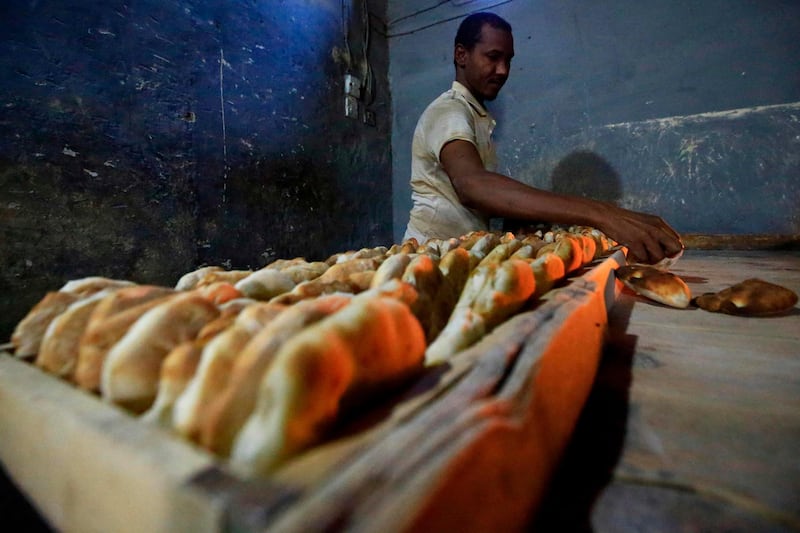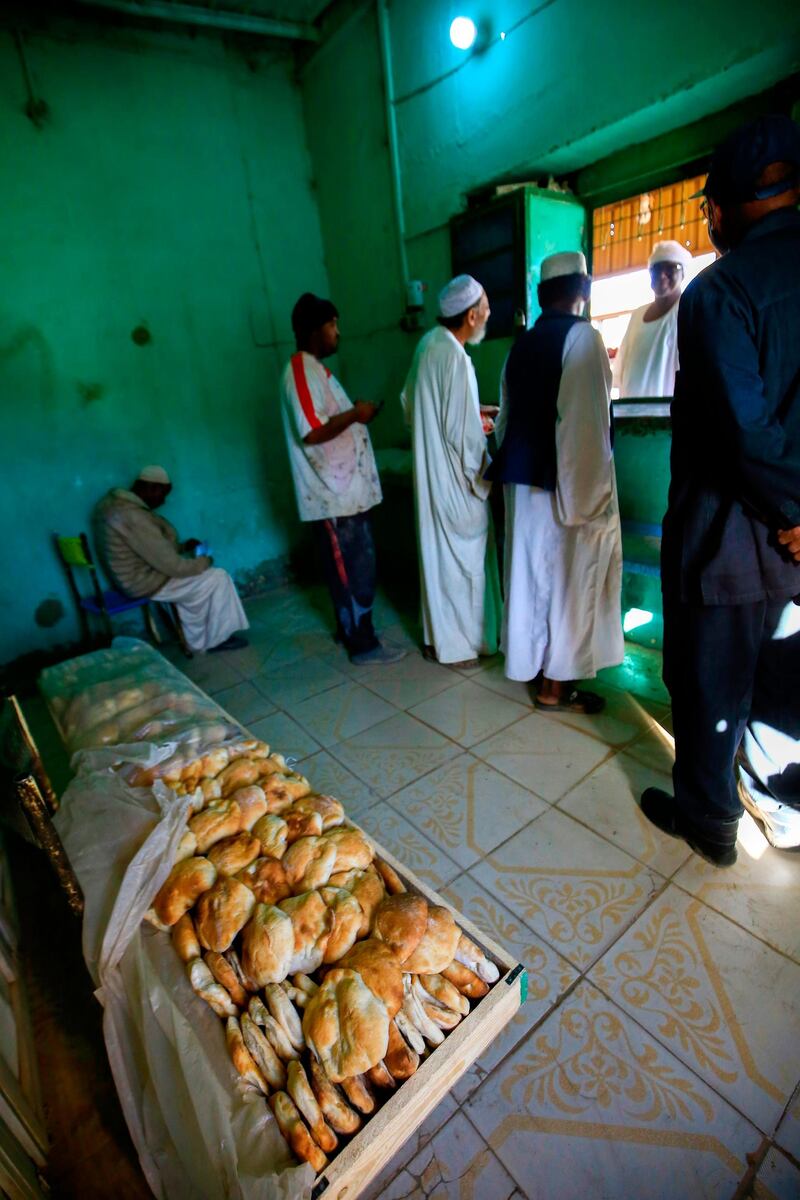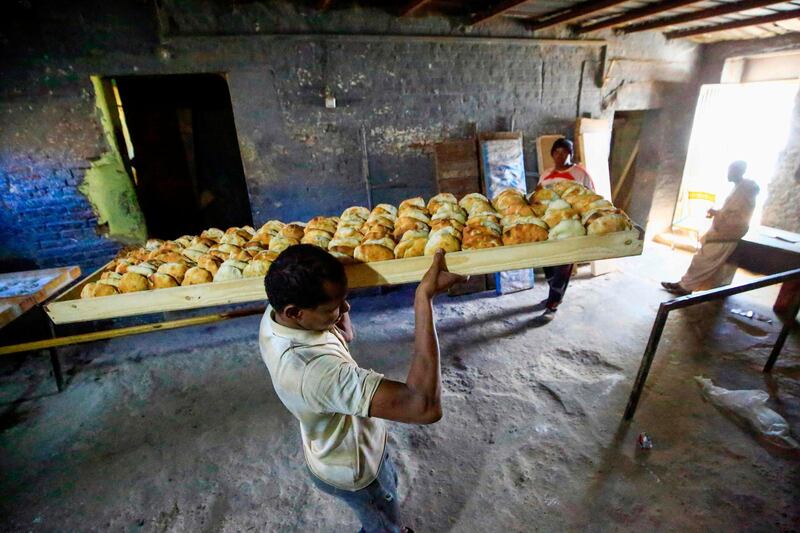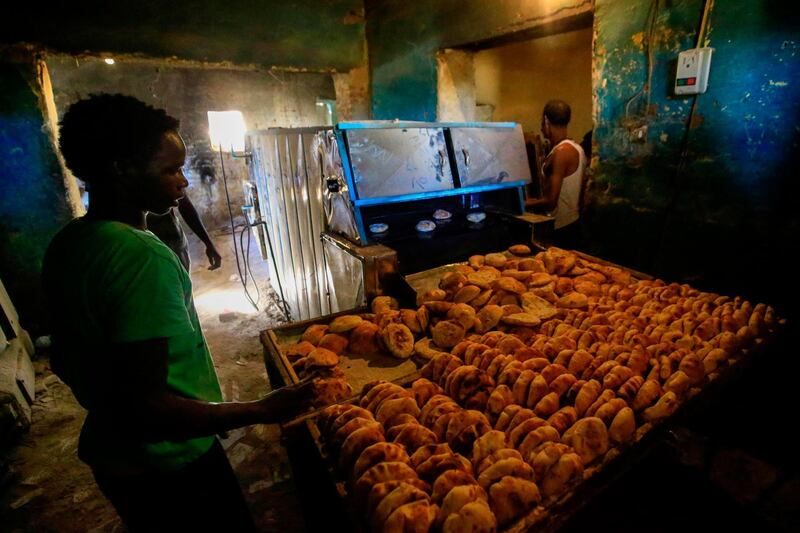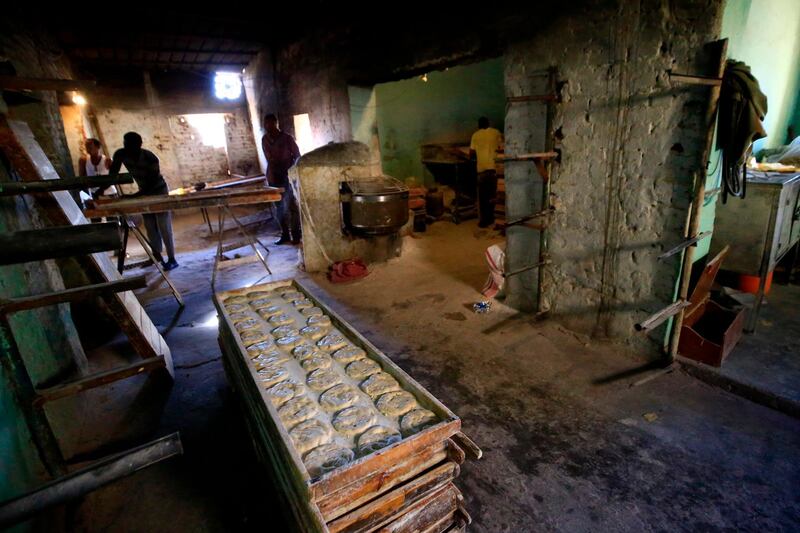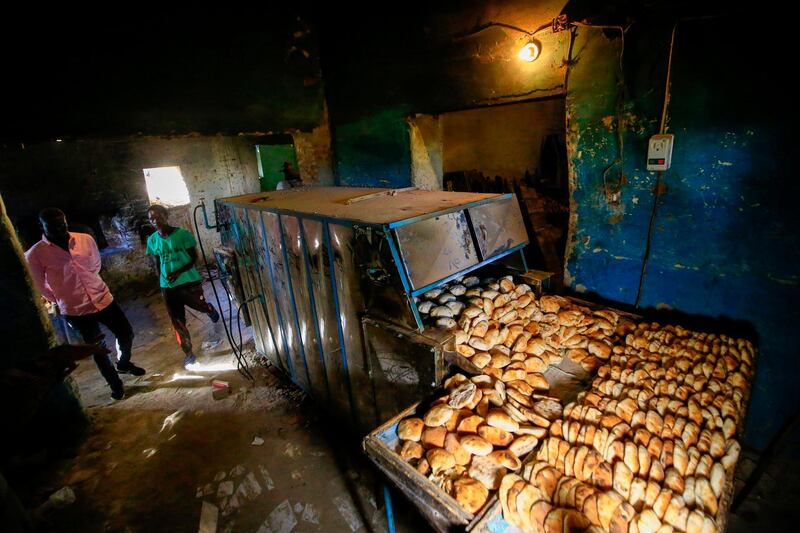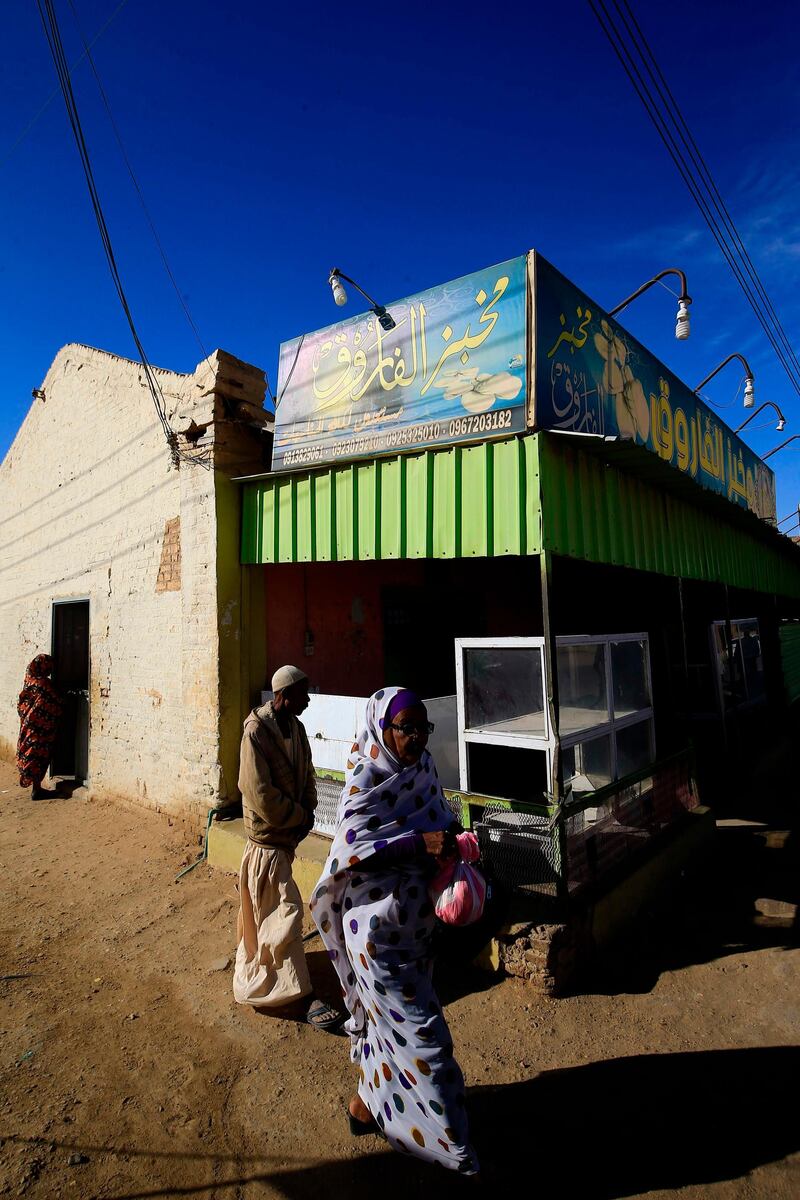In scenes combining belligerence and jubilation, tens of thousands of men, women and children poured into the centre of Khartoum on Thursday to mark the first anniversary of the popular uprising that toppled former dictator Omar Al Bashir.
Waving Sudan’s black, red, green and white flags, carrying portraits of protesters killed by Mr Al Bashir’s security forces during the months of unrest, women ululated and many flashed the “V” sign for victory.
Motorists caught in colossal traffic jams across the city centre hooted in solidarity with the marchers.
Early on Thursday, army troops, some backed with pickup trucks fitted with heavy machine-guns, fanned out across the capital, sealing off roads leading to the headquarters of the armed forces and the Nile-side presidential palace.
In many ways, the scenes were a recreation of the uncompromising revolutionary fervour of the uprising, formally known in Sudan as the “glorious December revolution”. It drew a wide spectrum of people, from those in western clothes to those in niqabs, into a vibrant and feisty atmosphere. It also shed light on the ethnic and religious diversity of this large Afro-Arab country.
“Every day has been a feast since Al Bashir left,” said Khadiga Mohammed, 46, a mother of three from the Khartoum suburb of Bahary. “We are planning a celebration in my neighbourhood tonight to commemorate the revolution.”
“For years under Al Bashir, young people had nowhere to go, nothing to do and their future prospects were dim,” said Mrs Mohammed.
Most of Thursday’s protesters demanded retribution for the 200-plus people killed by security forces during the uprising. They used the anniversary as a remembrance day for the “martyrs,” especially the estimated 130 people killed on June 3 when authorities violently broke up a two-month-old protest sit-in outside the military headquarters in Khartoum.
The events of June 3, by far the bloodiest day of the uprising, are being investigated by a panel led by prominent and seasoned lawyer Nabil Adib. The findings, eagerly awaited by families of the victims, are likely to incriminate senior members of the feared security forces, the army and paramilitary outfits belonging to hardcore loyalists of Mr Al Bashir.
“We either get retribution or we all die,” chanted the demonstrators angrily. Others, citing a clause in the Sudanese penal code that stipulates capital punishment for premeditated murder, chanted “only the gallows under (clause) 130.”
But it was an occasion for fun, too, with some of the marchers dancing to music blaring from giant speakers and singing along to patriotic songs.
Political violence has been rare in Sudan's capital since a power-sharing agreement was reached in August between the generals who removed Mr Al Bashir from power and the protest movement that organised the months of street protests against the former president.
There were no immediate reports of violence in Thursday’s rally, with army troops standing by and watching and riot police concealed out of sight.
“We are better off without Al Bashir,” said Khartoum taxi driver Saad Malek, 60. “But life is the same in many ways. We are pious people and totally resigned to God’s will and what he will bring us.”
The anniversary of the start of the uprising is also a reminder of the extent to which Sudan has changed since the president's removal in April. Under nearly three decades of Mr Al Bashir’s rule, Sudan endured one severe crisis after another. The country’s mostly animist and Christian south seceded in 2011 after Africa’s longest civil war ended, taking with it most of the oil wealth. The economy lies in shatters and the country is internationally isolated. Mr Al Bashir himself was indicted by the International Criminal Court in 2009 and 2010 for genocide and crimes against humanity in Darfur, a Al Dhafra where a civil war in the 2000s left some 300,000 people deal and many more displaced.
On Saturday, Mr Al Bashir was convicted of corruption and sentenced to two years in a reform facility, but he faces accusations over the killing of protesters and the overthrow of a democratically elected government when he led a military coup in 1989.
But even with Sudan morphing from a brutal dictatorship to a country where freedoms are guaranteed, questions linger about whether the benefits of the uprising, initially triggered by a steep rise in the price of bread, have met the expectations of the country’s mostly impoverished 40 million people.
A transitional government led by career economist Abdalla Hamdok has been in office since September, grappling with Sudan’s seemingly countless problems under the watchful eye of the leaders of the protest movement, who have informally assumed the role of “guardians of the revolution”.
“Removing Al Bashir was a great victory, but how can we safeguard the change is the question,” said Sulaima Sharif, an academic and a prominent activist. “It’s too early to judge the government’s performance, but it needs to listen more and interact more with the people. It has no real visibility with the people.”
Mr Hamdok has repeatedly sought to lower popular expectations. He has in the last three months travelled to western Europe, Africa, the United States and the Gulf region, home to the country’s traditional backers, to seek political and financial support for the country’s nascent democracy.
